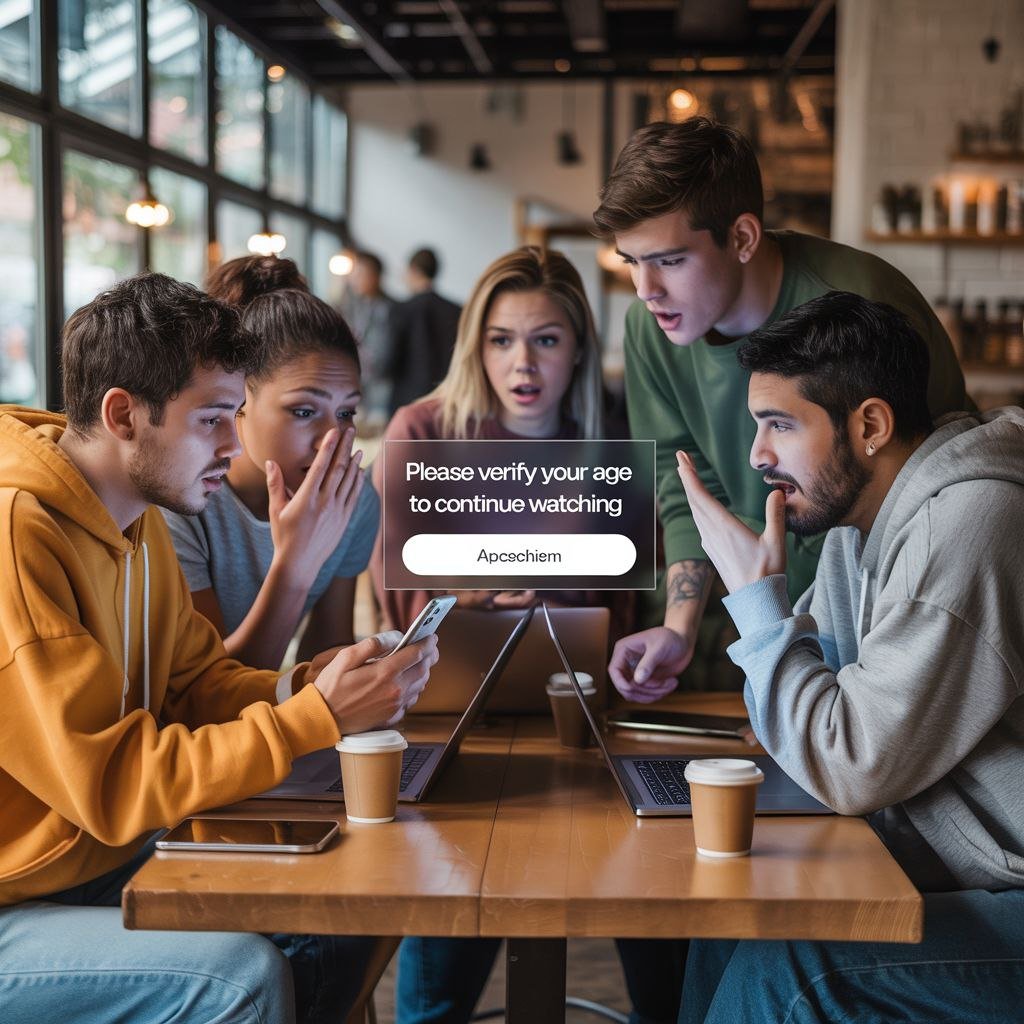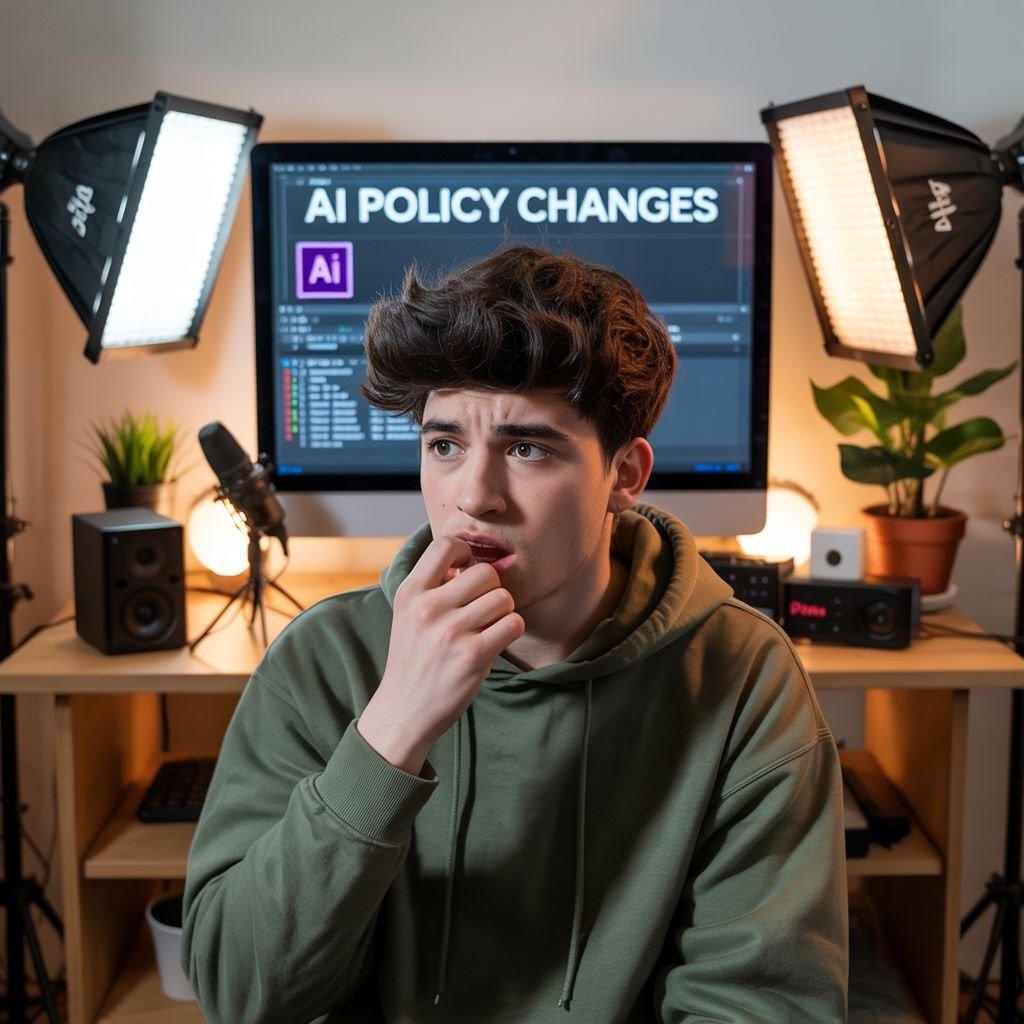What Is AI Age Verification and Why Is YouTube Introducing It?
In early 2025, YouTube announced a new system called AI Age Verification. This technology uses artificial intelligence to check the real age of users before they can watch certain videos or access specific features.
The main goal is to protect younger audiences from harmful or inappropriate content, while also following global laws like COPPA (Children’s Online Privacy Protection Act) in the US and GDPR (General Data Protection Regulation) in Europe.
From my own perspective, this move is not surprising. We all know there are countless YouTube channels posting kids’ shows, cartoons, and animated films — content that attracts millions of children worldwide. Even my own little one is hooked on such channels.
If this content gets restricted, it could be both a good and bad thing. On the positive side, it might push children to focus more on learning activities and keep their minds active. In fact, I personally believe YouTube is making the right decision here, especially since countries like Australia have already banned under-16s from using social media entirely.
Of course, others may see it differently, arguing that this is just a way for YouTube to collect more personal data from users. But from the child safety angle, the move does make sense.
How Does YouTube’s AI Age Verification System Work?
The AI Age Verification process is fairly straightforward:
- Face Analysis – YouTube may ask users to scan their face using their device camera. The AI then estimates your age based on facial features.
- Official ID Check – In some cases, YouTube may request an official ID, like a passport or driver’s license, to confirm your date of birth.
- Cross-Verification – The system cross-checks your account details with the provided data to ensure accuracy.
Not everyone will be required to go through AI-based age checks. It will mostly apply to users trying to watch age-restricted videos, access certain live streams, or change their date of birth in account settings.
Who Will Be Most Affected by AI Age Verification?

The new system will have the biggest impact on:
Teens aged 13–17 – They may need to prove their age more often, especially for mature-rated videos.
Users without official IDs – In some countries, this could be a challenge.
People using VPNs – VPN use might trigger extra verification steps.
Regions without formal ID systems – For example, rural areas in Africa where digital ID is uncommon.
Why Is YouTube Choosing AI Age Verification Over Traditional Methods?
YouTube says AI is faster, more accurate, and harder to trick than traditional methods.
The reasons include:
Preventing fake age declarations – Many teens simply lie about their birth year to bypass restrictions.
Complying with international regulations – To avoid legal issues in the US, EU, and other regions.
Protecting young viewers – Reducing exposure to explicit or harmful content.
Will YouTube Block Access Without AI Age Verification?
Yes, in some cases. If you skip verification:
You may not be able to watch certain age-restricted videos.
Live chat in some streams could be blocked.
You might lose access to specific channels or features until you verify.
For new and anonymous users, this could mean fewer options on YouTube until they provide proof of age.
Is AI Age Verification Safe? – Privacy and Data Concerns
One of the main fears is privacy. Users want to know:
Will YouTube store your facial data? – The company claims it will not permanently store your image, only the verification result.
Where does the data go? – It is processed through encrypted channels, but skepticism remains.
Can hackers exploit the system? – Like any online system, there’s always risk. However, AI verification is harder to fake than manual checks.
This insightful article explains what Agentic AI is and highlights its real-world applications—from healthcare and autonomous vehicles to finance and personalized assistants.
How Will This Change Affect YouTubers and Content Creators?

Kids’ content channels – May lose viewers if younger audiences cannot pass verification.
Verified content creators – Could benefit by gaining more trust from advertisers.
Business opportunities – New niches may appear, such as verified-safe learning channels.
Creators should prepare by updating their channel descriptions, clearly labeling content, and considering audience age in their strategy.
A surprising list of seven ways generative AI is transforming video production, including scripting, animation, editing, and visual creativity.
How Are People Reacting Globally to YouTube’s AI Age Verification?
Reactions are mixed:
Criticism from privacy advocates – Many see it as unnecessary surveillance.
Supporters of child safety – Others believe it’s worth it to protect minors.
African and Somali perspectives – Some think it’s impractical in regions without easy access to official IDs, while others welcome the extra protection for children.
How Can You Prepare for YouTube’s AI Age Verification in 2025?
For users:
Make sure your Google account has correct birth date and ID details.
Parents should learn how to manage YouTube Kids accounts.
For creators:
Update your channel’s About section with accurate information.
Be ready to verify your age if requested.
this video can tell you why the internet wants your id its really sensitive information so watch be for you doing anything
Trusted Sources for Further Reading
where Technology and bussiness opportunities meet
The Guardian – “YouTube and Google’s New AI Age Verification Push”
Find a detailed exploration of why YouTube is rolling out AI age-checks now, and how the move shapes the future of online safety and privacy.
9to5Google – “What You Need to Know About YouTube AI Age Verification”
A clear, up-to-date breakdown of how YouTube’s AI age-verification works, what it means for different users, and what to expect next.
Cloudwards – “YouTube Tests AI Age Verification in the U.S.”
Latest coverage on the pilot launch of YouTube’s AI-powered age-check system in the United States, and how it may impact content accessibility.
TechCrunch – “YouTube’s AI Roadmap: Dubbing & Age Verification Updates”
Insight into YouTube’s broader AI strategy—including auto-dubbing and expanding age-verification—as the platform evolves with technology.
The Telegraph – “Wikipedia Threatens to Limit Access in the UK”
Reports that Wikipedia may restrict access in Britain if the UK’s Online Safety Act’s categorization rules—forcing user ID verification—remain unchanged. A real-time snapshot of the conflict between data privacy and regulatory compliance.
Final Thoughts – Is AI Age Verification the Future or a Barrier?
Whether you see this as progress or a problem depends on your perspective. From a safety standpoint, AI Age Verification could be a big win for protecting children. From a privacy standpoint, it may feel intrusive.
The reality is that AI-based age checks are likely to become more common across the internet in the next few years. The question is: are you ready for this new era of digital identity?
A clear explanation of the Model Context Protocol (MCP), why it matters in AI development, and seven powerful areas where it’s making an impact.
